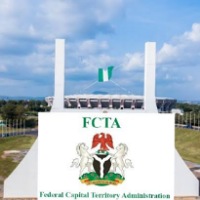Motoring
Honda becomes first Japan automaker to be net exporter from U.S.

SEOUL – Honda Motor Co (7267.T) last year exported more cars out of the United States than it imported into the country, claiming a first among major Japanese automakers.
More than 30 years after it began building cars in the U.S., the company’s North American arm said it shipped 108,705 Honda and Acura brand vehicles out of the U.S. in 2013. The company imported 88,537 vehicles into the U.S. from Japan.
Rick Schostek, Honda North America’s executive vice president, told reporters on a conference call the milestone was “one that’s been 30 years in the making”. The exported vehicles carried a value of $2.658 billion.
The net exporter status is also the product of significant recent investment – Honda has put more than $2.7 billion into expanding its North American auto plants in the past three years. That’s part of a strategy designed to boost production in the U.S. and make cars close to the markets where they are sold, said Schostek.
Honda shipped from U.S. plants last year to 50 countries, but most of the exports went to Mexico. Honda did not include shipments to Canada in its U.S. export figures.
Having begun importing the gas-sipping subcompact Civic into the U.S. in 1973, Honda began making cars in the country in 1982. Its Marysville, Ohio, plant, was the first to be owned by a Japanese auto company in the U.S., and the Accord sedan was the first model to roll off its assembly line.
The company now has seven auto assembly plants in North America, including four in the United States. An eighth plant in Celaya in Mexico opens next month, making the Honda Fit subcompact.
From 1987 to 2012, 1 million Honda vehicles were exported after production at U.S. plants. In 1988, it exported an Accord Coupe to Japan for the first time, but the company now does not export any U.S.-made products to its home base in Japan.
EXPORT-IMPORT TREND
The 2013 numbers marked a significant switch from a year earlier as Honda stepped up investment and production. In 2012, Honda imports to the U.S. market were about 136,000, outnumbering exports from its U.S. of about 74,000.
Honda also set a record last year for the number of vehicles it built at U.S. plants, about 1.3 million. Including plants in Canada and Mexico, Honda made 1.78 million vehicles in North America.
Honda’s trend toward increasing its exports from U.S. and North American plants will continue in the next few years, Schostek said.
The gap in favor of imports to the U.S. market was substantially wider just five years ago, when 187,000 Honda and Acura vehicles came into the U.S. market while only about 20,000 were exported.
The weaker yen had little impact on imports from Japan in the U.S. market, primarily due to the long-term strategy of localized production, Honda said.
Schostek said boosting U.S. exports by the company is aided by the increasing reliance on U.S.-based research and development of Honda and Acura vehicles sold in North America. A third of the Honda and Acura vehicles sold in the U.S. were designed and developed there, Schostek said.
Honda says that 95 percent of the vehicles it sells in North America are made at local plants.
– REUTERS
Motoring
FCTA Pulls Plugs On Taxi Rank, Terminal Services Contracts

The Federal Capital Territory Administration (FCTA) has ended contracts with taxi rank and terminal operators due to their failure to meet engagement terms and conditions.
Mr. Ubokutom Nyah, the Mandate Secretary of the Transportation Secretariat, FCTA, made this announcement during a meeting with managers of these terminals and taxi ranks in Abuja.
Nyah clarified that due to the operators’ failure to fulfill their engagement terms, the FCTA had to terminate their contracts.
He instructed them to transfer control of the ranks to the Administration within three months, starting from Nov. 21.
He lamented the presence of unauthorized motor parks in the city and assured the readiness of the Administration to establish proper taxi ranks and terminals in the capital.
He revealed that personally visiting the city’s taxi ranks, terminals, and unauthorized motor parks gave him direct insight into the poor condition of these facilities.
He emphasized that as the federal capital city, Abuja deserves better, highlighting that the poor condition of these facilities attracts various criminal elements.
He said “We must rid Abuja of all these. I have gone round the taxi ranks, and of all the places I visited, not one is worthy to be called even a village motor park.”
The Mandate Secretary stressed that the intention wasn’t punitive; rather, it aimed to revamp the sector, introduce new engagement terms, and modernize taxi ranks and terminals in the federal capital.
He also highlighted the plan to increase the number of terminals and ranks where necessary, which would positively impact the administration’s revenue.
He emphasized that this measure was part of a broader effort to eliminate illegal motor parks in Abuja and curb the associated criminal activities.
In response, Mr. Adebisi Lawal, the Operator of Jahi Taxi Rank, praised the administration’s initiative to modernize the taxi ranks and terminals.
Lawal urged the administration to prioritize current operators’ involvement in the selection of new developers for the modernization of the taxi ranks and terminals.
Motoring
Power Show Sees Soldiers Batter LASTMA Officer

It was a show of power at the Ojota area of Lagos on Monday as soldiers pummeled an officer of the Lagos State Traffic Management Authority, (LASTMA).
Eyewitness accounts claim that the ugly scene played out around 8am, and saw about eight soldiers pounce on the yet to identified LASTMA official, while his colleagues took to their heels.
The video of the melodrama has gone viral, where the LASTMA official was appealing to the soldiers, who appeared bent on ‘teaching him a lesson’.
This onslaught comes on the back of a reported assault of a soldier at the same location by LASTMA officials last week.
It would appear that what played out today was the army asserting its authority and defending their khaki as the armed soldiers carried out what looked like a revenge mission.
Eyewitnesses further averred that the victim was rushed to a nearby hospital, after the soldiers left the scene.
It was gathered that the authorities at LASTMA has reported the incident to the military authorities who are said to be looking into the matter.
Meanwhile many members of the public are rejoicing that the soldiers have taught the crude LASTMA official that power is stronger than power, for all their atrocities against motorists on Lagos roads.
Motoring
Intra-City Fares Skyrocket By 98% Month-On-Month – NBS
The impact of the removal of subsidy on Premium Motor Spirit (PMS), otherwise known as petrol, has seen the pump prices of the product skyrocket with a corresponding increase in the cost commercial transportation in Nigeria.
According to the National Bureau of Statistics (NBS), intra-city bus transportation fares across Nigerian cities, measured between May and June 2023, increased from N649.59 to N1,285.41 in June 2023.
This translates to 98 percent growth or N635.82 within the month in view.
The NBS made the data available in its Transport Fare Watch report for June 2023.
In the report, the NBS also shared the breakdown of bus journeys within the cities per drop for constant routes; bus journey intercity (state route); charges per person, amongst others.
On a year-on-year basis, the report has it that bus fares rose by 120.63 percent from N582.61 paid by commuters in June 2022.
The average fare paid by commuters for bus journey intercity per drop rose to N5,686.49 in June 2023 compared to N4,002.16 in May 2023 indicating an increase of 42.09 percent, month-on-month.
The report read, “The average fare paid by commuters for bus journeys within the city per drop increased by 97.88 per cent from N649.59 in May 2023 to N1,285.41 in June 2023.
On a year-on-year basis, it rose by 120.63 per cent from N582.61 in June 2022.
“In another category, the average fare paid by commuters for bus journey intercity per drop rose to N5,686.49 in June 2023, indicating an increase of 42.09 on a month-on-month basis compared to N4,002.16 in May 2023.
“On a year-on-year basis, the fare rose by 55.25 per cent from N3,662.87 in June 2022.”
Biztellers reported that the twin forces of forex pressure and increasing price of Brent in the global market would likely see the pump prices of petrol, increased again in no distant time in Nigeria.











